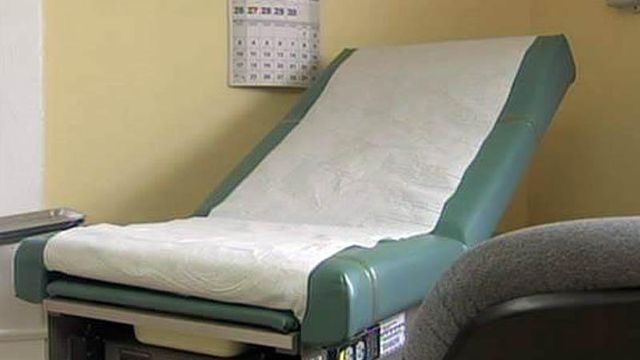Duke partners with community to improve medical care
The Duke Center for Community Research has partnered with Durham Health Innovations (DHI) and the Durham community to help improve medical care for residents.
Posted — UpdatedDCCR, led by Dr. Lloyd Michener, and its partners are working on ways to better address area concerns, and to find ways to push proven technologies and therapies quickly into community practice. The goal is to improve the health of its residents, especially under-represented minorities.
DCCR also intends to help community groups find solutions to their health concerns.
"What we are really talking about here is the redesign of services that pushes healthcare into communities, into schools, into homes and into neighborhoods,” said Michelle Lyn, director of DCCR.
The Walltown Neighborhood Clinic is a joint program of the Lincoln Community Health Center and the DCCR.
Durham resident Heather Warren said she goes to the Walltown Clinic, 815 Broad St. in Durham, when she needs medical care.
"It's so convenient. I live probably like three minutes down from here,” Warren said.
The working mother says the clinic saves her time.
"It's quick. You don't have to sit here for two hours to be seen. You get in, you get out,” Warren said.
"I think Duke has stepped back and said we have all these resources and we've built it, but if you are not coming, we want to know why,” Dr. Sharon Elliott-Bynum, founder of CAARE, Inc.
Elliott-Bynum founded the free clinic, CAARE, Inc. She said money and a lack of knowledge keep people from being healthier.
"That's why the numbers are so high in emergency rooms, because people literally will wait until there is a crisis for them to go take care of themselves,” Bynum said.
Duke hopes by partnering with groups throughout Durham – from healthcare providers to the National Association for the Advancement of Colored People (NAACP) – people will get the information they need to stay healthy.
"It's like a little community,” Heather Warren said of her neighborhood clinic.
The grant money for DCCR's work comes from Duke’s contribution to the Clinical and Translational Science Award, a major grant from the National Institutes of Health grant that enabled the creation of the Duke Translational Medicine Institute (DTMI) and other programs like it across the country.
• Credits
Copyright 2024 by Capitol Broadcasting Company. All rights reserved. This material may not be published, broadcast, rewritten or redistributed.





